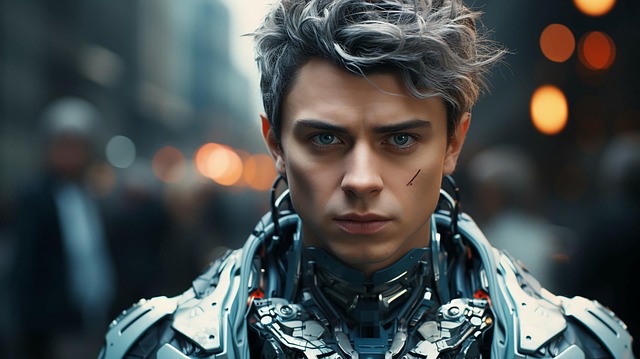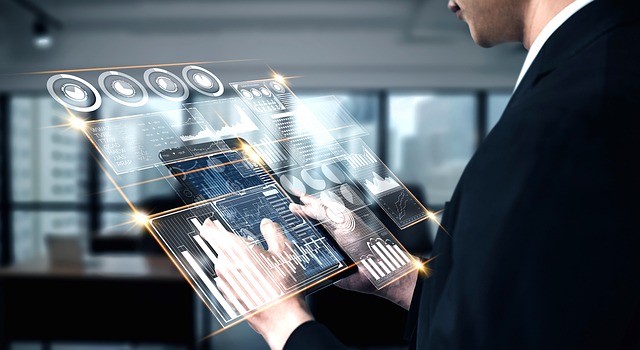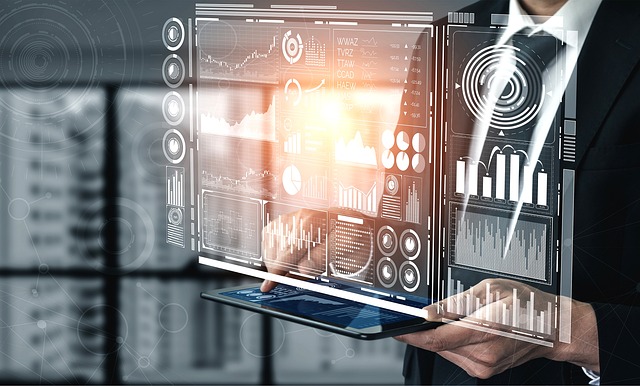Section 1: Introduction to AI and its Impact on Technology
The world of technology is constantly evolving, with new advancements and innovations being introduced at an unprecedented pace. One of the most significant developments in recent years has been the integration of Artificial Intelligence (AI) into various industries and sectors. AI, also known as machine intelligence, is a branch of computer science that enables machines to perform tasks that typically require human intelligence. From self-driving cars to virtual personal assistants, AI has revolutionized the way we interact with technology. In this article, we will explore the impact of AI on technology and how it has unleashed creativity and efficiency in various fields.
Section 2: Unleashing Creativity with AI
One of the most remarkable ways in which AI has transformed technology is by unleashing creativity. With the ability to analyze vast amounts of data, AI has enabled machines to generate new ideas and solutions that were previously unimaginable. This has led to the development of innovative products and services that have changed the way we live and work. For instance, AI-powered design tools have made it possible for designers to create unique and personalized products in a fraction of the time it would take a human. These tools can analyze customer preferences and generate designs that cater to their specific needs, unleashing a new level of creativity in the design process.
Moreover, AI has also opened up new avenues for creative expression in the entertainment industry. With the help of AI, filmmakers and game developers can create stunning visual effects and immersive experiences that were once only possible in our imagination. AI-powered algorithms can analyze and learn from existing content to generate new and unique storylines, characters, and environments, making the creative process more efficient and diverse. This has not only enhanced the quality of entertainment but has also created new job opportunities for AI experts in the industry.
Section 3: Enhancing Efficiency with AI
Apart from unleashing creativity, AI has also significantly enhanced efficiency in various sectors. One of the most notable examples is in the field of healthcare. With the help of AI, medical professionals can now analyze vast amounts of patient data to make accurate diagnoses and provide personalized treatment plans. AI-powered medical devices can monitor patients in real-time and alert healthcare providers of any potential health risks, allowing for early intervention and improved patient outcomes. This has not only reduced the burden on healthcare professionals but has also improved the overall quality of care.
In addition to healthcare, AI has also transformed the way businesses operate. With the help of AI-powered tools, companies can automate routine tasks, such as data entry and customer service, freeing up employees to focus on more strategic and creative tasks. This has not only increased efficiency but has also reduced the chances of human error, leading to better outcomes. Moreover, AI can analyze consumer behavior and market trends to make accurate predictions and recommendations, enabling businesses to make data-driven decisions and stay ahead of the competition.
Section 4: The Future of AI and Technology
As AI continues to evolve and integrate into various industries, the possibilities for its application are endless. In the coming years, we can expect to see even more advanced AI technologies that will further revolutionize the way we interact with technology. For instance, the development of autonomous vehicles powered by AI has the potential to transform the transportation industry, making it safer and more efficient. Similarly, the use of AI in agriculture can help optimize crop production and reduce food waste, addressing global food security issues.
Moreover, AI has the potential to bridge the gap between humans and machines, making technology more accessible and user-friendly. Natural Language Processing (NLP) and speech recognition technologies have already made it possible for us to communicate with machines in a more human-like manner. This has opened up new possibilities for people with disabilities, enabling them to interact with technology and perform tasks that were once out of reach. In the future, we can expect to see even more advanced AI technologies that will make technology more inclusive and accessible for all.
Conclusion:
In conclusion, AI has revolutionized the world of technology by unleashing creativity and enhancing efficiency in various industries. From design and entertainment to healthcare and business, AI has opened up new possibilities and transformed the way we live and work. As we continue to push the boundaries of AI, the future of technology looks promising, with endless possibilities for innovation and progress. It is vital for us to embrace AI and continue to explore its potential to create a better and more efficient world.











